Europe
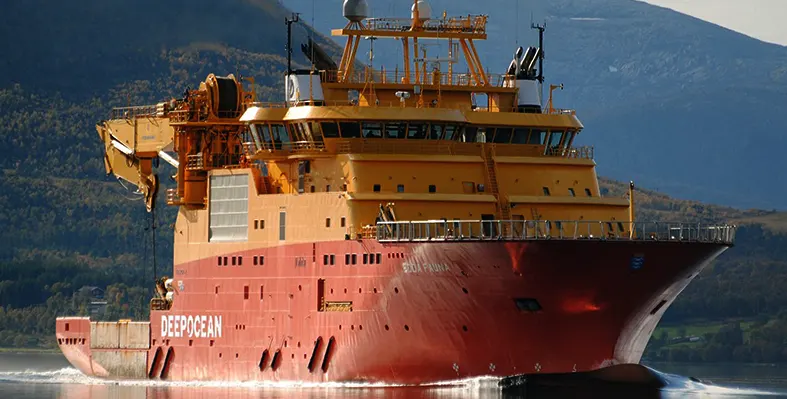
- Region: North Sea
- Date: May, 2024
 Equinor has awarded DeepOcean a four-year frame agreement for marine services that includes subsea intervention and repair contingency for subsea pipelines, structures and high voltage cables for not only oil and gas fields but also offshore renewables.
Equinor has awarded DeepOcean a four-year frame agreement for marine services that includes subsea intervention and repair contingency for subsea pipelines, structures and high voltage cables for not only oil and gas fields but also offshore renewables.
The agreement comes with a scope for extension up to another four years.
Geographically the agreement is valid for work on the Norwegian continental shelf and internationally for planned Equinor work and for contingency work for the PRSI pool members, which comprises 23 energy companies that cover their offshore pipeline and power cable repair contingency via the pool.
The contract delivery will be managed by DeepOcean from its Haugesund-based office in Norway.
“Such a long-term agreement allows us to constantly evolve working methods, collaboration models and technologies, with the objective of making offshore operations and subsea cable repair work as cost-effective as possible. We look forward to supporting Equinor and the PRSI Pool members over the coming years,” said Olaf A Hansen, Managing Director of DeepOcean’s European operation.
For work in the offshore oil and gas industry, the frame agreement covers planned or unplanned marine services using remote operated intervention methods with or without the use of PRS equipment.
Under the agreement, DeepOcean is also expected to be equipped to produce multiple engineering or preparedness studies as requested by Equinor or PRSI pool members.
“DeepOcean has a 400 people-strong engineering team that are specialists on solving subsea challenges across industries. We are industry agnostic and share learnings and experiences from subsea operations across different types of operations and industries in order to develop the best possible solutions for our clients. Our experience from oil and gas is highly valuable for offshore renewables – and vice versa," said Normann Vikse, Offshore Renewables Director at DeepOcean.
DeepOcean has already received the first call-offs for work under the new frame agreement.
On behalf of Gassco and Equinor, DeepOcean will perform seabed preparations and complex remote hot tap tie-in operations at three different locations on the Norwegian continental shelf. Hot tapping is a method of connecting to a pressurised system, such as a pipeline, without removing the pipe from service.
On behalf of Gassco with Equinor acting as technical service provider, DeepOcean has already performed marine services to support baseline inline inspection of a large sized pipeline.

- Region: North Sea
- Topics: Decommissioning
- Date: May, 2024
 An integrated service provider from Aberdeenshire, AquaTerra Group has announced four decommissioning contract wins that add up to a seven-figure sum.
An integrated service provider from Aberdeenshire, AquaTerra Group has announced four decommissioning contract wins that add up to a seven-figure sum.
The last year has marked several firsts for the Group, including the first time that the company was subcontracted by Dutch offshore contractor, Allseas. Under the contract, AquaTerra supported an EPRD project on Enquest’s Heather Alpha platform. It provided engineering, fabrication, access, and construction teams to complete underdeck preparation scopes for topside removal.
Also for Allseas, AquaTerra removed underdeck obstructions in preparation for the topside removal of TAQA’s Cormorant Alpha platform. This was followed by a subcontract from Wood, which involved further work on the same platform.
By utilising its lifting and rigging equipment and services, including its modular suspended access platform QuikDeck, AquaTerra also won its first decommissioning contract with another operator to support conductor decommissioning.
Stephen Taylor, Managing Director of AquaTerra Group, said, “The team and I are delighted that we were selected by Allseas through what was a competitive tendering process for the Enquest and TAQA projects. This is also the first time that we have worked with Wood in several years, so it is great to be supporting them again.
“We’re tendering for more big projects than we’ve ever tendered for before in decommissioning, and this is already paving the way for us achieving our target of £14 million turnover in 2024.”

- Region: All
- Topics: Decommissioning
- Date: May, 2024
 The Net Zero Technology Centre (NZTC) has called for innovations in rigless plug and abandonment.
The Net Zero Technology Centre (NZTC) has called for innovations in rigless plug and abandonment.
This has been made in partnership with the 'Go Radical P&A' project, a venture by Energy Transition Norway, Danish Offshore Technology Centre, Centre of Decommissioning Australia and the Petroleum Technology Alliance Canada.
A cost-efficient and environmentally sensitive option for well decommissioning, new innovations in rigless plug and abandonment is considered one of the best way to meet regulatory requirements. They will also help address technical challenges such as accessing the wellbore without a drilling rig.
This comes as part of NZTC’s Well Decommissioning Collaboration initiative, which is actively supported by the Technology Leadership Board, North Sea Transition Authority, and Offshore Energies UK. The initiative aims to trial and test new technologies in multi-operator collaboration field trials, enabling faster, lower-cost trials and wider industry adoption in the UK and beyond, aligning with UKCS cost and emission reduction targets.
Selected participants will get to interact with a consortium that includes Harbour Energy, ConocoPhillips, Respol, TotalEnergies and Petrobras, with potential for support in developing, trialling and testing technologies. They will get exposure at similar operator consortiums in Norway, Denmark, Australia and Canada as well.
Joint innovation
Lewis Harper, Project Manager for NZTC’s Well Decommissioning Collaboration, “Our Wells Decommissioning Collaboration initiative highlights how joint innovation is crucial for advancing technologies needed for affordable and sustainable well decommissioning, supporting the industry in reaching its net zero targets. It’s an exciting chance for emerging developers to join in, gain exposure, and potentially receive support to propel their technology development.”
UK Government Minister for Scotland Donald Cameron said, “This is a fantastic initiative that aims to deliver innovative and affordable solutions through information sharing and trials to help secure the future prosperity of the energy sector while helping to achieve our net zero goals. I encourage those working with this technology to find out more.
“The UK Government is investing £90 million in the Net Zero Technology Centre and more than £3 billion to level up right across Scotland.”
The deadline for applications is 23:59 on 31 May.
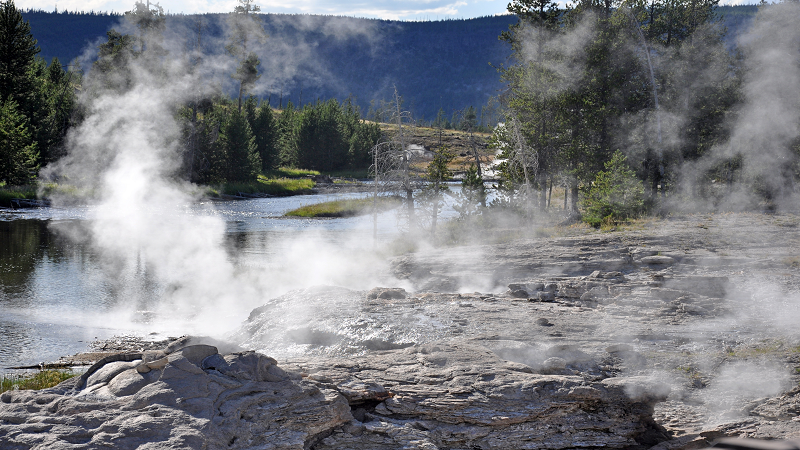
- Region: Europe
- Topics: Geothermal
- Date: May, 2024
 The European Investment Bank (EIB) has provided a loan to Eavor Technologies to support the commercial-scale geothermal heating project in the German state of Bavaria.
The European Investment Bank (EIB) has provided a loan to Eavor Technologies to support the commercial-scale geothermal heating project in the German state of Bavaria.
Eavor will implement its closed-loop technology, Eavor-Loop, for the first time at commercial scale in the Bavarian town of Geretsried with the help of EIB’s loan of close to €45mn. The loan comes with a guarantee by the European InvestEU programme.
The project is co-financed by Japan Bank for International Cooperation, ING Bank N.V., and Mizuho Bank Ltd, and is insured by Japan’s Export Credit Agency, Nippon Export and Investment Insurance. It qualifies as a green loan in accordance with the Loan Market Association’s Green Loan principals. The combined support amounts to €130mn. The project is also being developed with the additional support of a €91.6mn grant from the EU Innovation Fund.
The Eavor-Loop will provide heating to households and businesses in Geretsried. In addition, an on-site power station will convert the geothermal heat into electricity. Eavor intends to start heat delivery by 2026, and the Eavor-Loop has started developing a second project in Germany to supply 15-20% of the demand of district heating in Hanover.
Nicola Beer, EIB Vice President, said, “The Eavor-Loop supports the transition to a carbon-neutral energy system in Germany and helps the country to get independent form fossil fuels, while adding to energy security for the people and businesses.”
Commissioner for Climate Action, Wopke Hoekstra, commented, “Once again, we see how valuable the work of the Innovation Fund is through the funding it provides for cutting edge projects that lower emissions. Today, thanks to €45mn investment by the European Investment Bank and €91.6mn from the Innovation Fund, we are supporting the innovative geothermal technology Eavor-Loop in Bavaria, Germany.”
Daniel Molk, Executive Vice President Europe Operations, concluded, “We are impressed and honoured that, after the EU Innovation Fund, the European Investment Bank is now also co-financing our project in Geretsried. Europe has recognised that the Eavor Loop is a scalable key technology for achieving climate neutrality and significantly more energy security on this continent."

- Region: Europe
- Topics: Geothermal
- Date: Apr, 2024
 AGR has been awarded a contract by geothermal energy supplier Innargi for the provision of technical consultancy for three appraisal wells being drilled in Aarhus, Denmark.
AGR has been awarded a contract by geothermal energy supplier Innargi for the provision of technical consultancy for three appraisal wells being drilled in Aarhus, Denmark.
Through the contract, AGR will provide wellsite geology and drilling supervision over the Aarhus wells as the company boasts extensive experience in well and reservoir engineering for geothermal wells. AGR has previously supplied software solutions for managing geothermal drilling time and costs for projects throughout Germany and Austria.
Lene Thorstensen, Manager Operations and Wellsire Geology at AGR, said, “Our team has a track record of managing drilling of more than 200 wells in the North Sea. The Aarhus project is a great example of valuable competence transfer from the oil and gas industry to renewable energy sources.”
Innargi aims to bring clean and reliable district heating to Europe through geothermal energy, and the Aarhus plant project provides a stepping-stone to achieving that goal. The geothermal plant, if everything goes accordingly, will become the EU’s largest geothermal district heating system. A 6,000 horsepower drilling rig has been set to drill 2.5 km into the ground to extract the heated water, with heat delivery set to begin in 2025. The system is projected to provide 20% of Aarhus’ district heating upon completion.
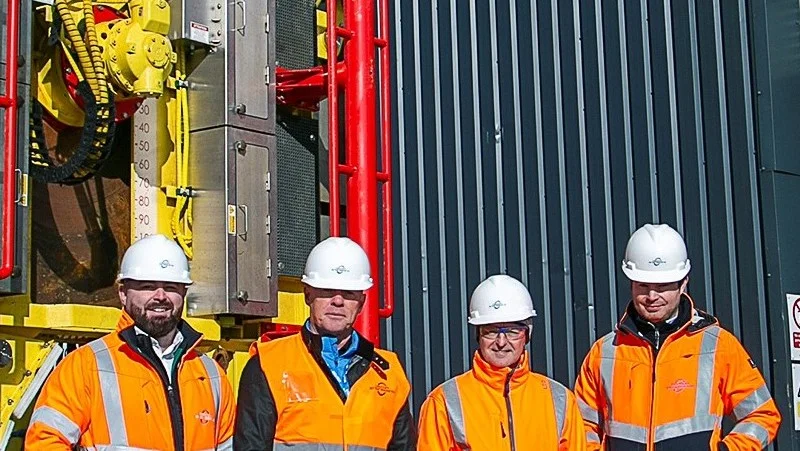
- Region: All
- Topics: Decommissioning
- Date: April, 2024
 The UK-based decommissioning specialist Decom Engineering's intellectual property (IP) has passed a 'strength test' following an intellectual asset review of its pipeline cutting saw technology and Pipe Coating Removal (PCR) tools by global IP experts Inngot.
The UK-based decommissioning specialist Decom Engineering's intellectual property (IP) has passed a 'strength test' following an intellectual asset review of its pipeline cutting saw technology and Pipe Coating Removal (PCR) tools by global IP experts Inngot.
Decom's C1 range of chop saws has served major hydrocarbon producing regions, and its PCR machine is known for its sustainable and cost-saving credentials as they are capable of safely removing protective coatings from pipes for them to be repurposed in construction and other projects.
To protect its market advantage, Decom commissioned Inngot to report on the strengths of its IP as it ramps up protection in US, Canadian and European markets and in other key regions where its technology has been used, including Australia, Thailand, Malaysia and Brunei.
Safe and effective for decommissioning
The report commissioned to Inngot on the strengths of Decom's IP read, “Decom Engineering has developed safe and effective pipeline cutting equipment for the decommissioning and maintenance of oil and gas pipelines and installations. The patent describes a cutting apparatus designed for versatile, efficient cutting of various materials both above and below sea level, which is useful in decommissioning industries.
“Cleanly cutting through 2" to 46” pipes, the C1 Chopsaw is a single-blade, cold-cutting saw that can be deployed and operated within the harshest working conditions, both onshore and subsea. It is fully certified to 2000m water depth, is customisable, and has blade reverse and hot stab integration capabilities.
“The patents focus on an adaptable, efficient cutting apparatus. The unique features, like multiple cuts per blade, fast cut times, and the use of water cooling systems for surface cutting, demonstrate the practical application of the patented technology, enhancing their marketability and potential for generating cash flows.”
Nick McNally, Decom Engineering Commercial Director, said that the company prioritises strengthening patent protection as an important step to gain an edge over competitors in diverse international markets.
He said, “We know our technology is market leading and of high value so it makes sense to put in place all the necessary protections to ensure we can make the most of the growth opportunities which present themselves.
“When a patent is granted, it prevents a third party from legally manufacturing, importing into, exporting out of, storing or using a patent-protected product in the territory where the patent is granted and valid.
“Working closely with Inngot, we have established the commercial value of our technologies and this has underlined the need to take a rigorous approach if we feel our designs and decades-long expertise is being compromised.”
An analysis by Inngot of Decom’s PCR machine technology, reads, “The patent outlines a comprehensive solution for the efficient removal of protective coatings from pipes. It addresses problems associated with existing methods, such as labour intensiveness, high costs, and environmental risks due to the release of toxic chemicals.
“The invention features a versatile tool carriage that supports various removal tools, including scrapers, sanders, and wire brushes. This adaptability allows for effective coating removal while maintaining energy efficiency. The apparatus is designed to ensure the structural integrity of the pipes, promoting their reuse and minimising environmental impact.
“This system's technological advancements, demonstrated by its ability to remove multiple coating types with 100% waste capture and converting pipes into usable products, make it a practical application of the patent. There is a direct relationship with the product, which has unique features that cater to a specific need in the market. This indicates a clear plan to use the patent to generate cash flows.”
The report also researched existing patents which have been lodged by potential competitors, adding, “The patent analysis was extended to examine the patenting activities of other entities in the same technological sectors so that the company’s position in the broader industry landscape can be assessed. This provides a holistic view that gives a deeper understanding of the company's innovation strategy and its financial implications, as well as identifying both potential competitors and potential acquirers of the IP.”
“The strength of our patented technology is underlined by the number of international projects we are currently engaged on and a strong pipeline of future work on the horizon and into 2025,” said McNally.
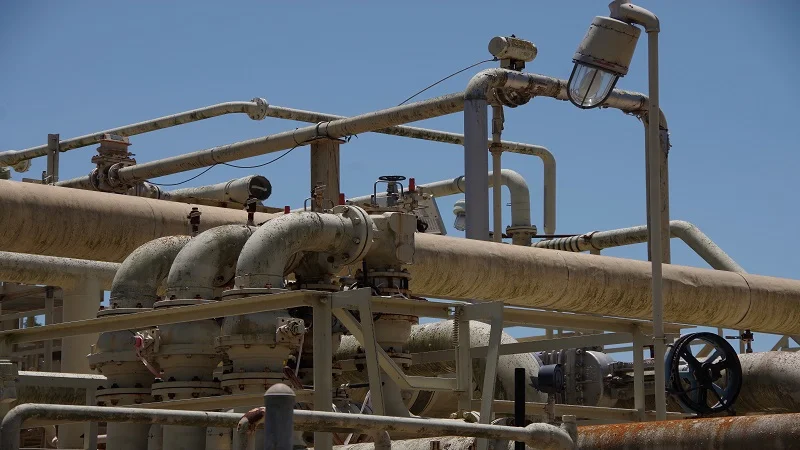
- Region: North Sea
- Topics: Decommissioning
- Date: Apr, 2024
 Exploration and production company Energean will be taking control of the decommissioning of Tors and Wenlock fields in the Southern UK North Sea, which are now at the end of their economic production capability
Exploration and production company Energean will be taking control of the decommissioning of Tors and Wenlock fields in the Southern UK North Sea, which are now at the end of their economic production capability
As part of the project the company has put together a specialist team, including Andrew Shepherd as UK Decommissioning Manager to carry out the approved work plan.
Waldorf Production, who operated the two fields, has officially passed the baton to Energean who is also a majority owner in the fields, with 68% ownership of Tors and 80% of Wenlock. The company had acquired the stakes in 2020 from Edison Exploration & Production SpA.
Tors and Wenlock reached the end of production in 2020 and 2022 respectively.
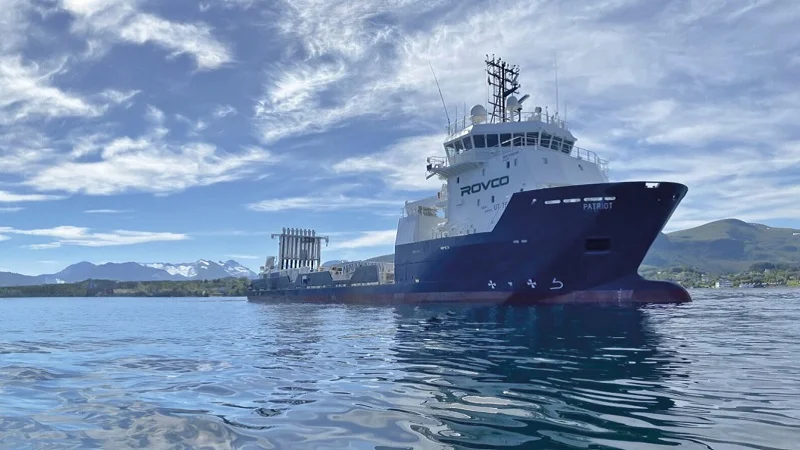
- Region: North Sea
- Topics: Decommissioning
- Date: Mar, 2024

The MV Patriot has become the latest addition to the Rovco specialist fleet, joining the company’s existing two site characterisation vessels.
The leading provider of tech-powered offshore wind solutions that is valued at nearly UK£200mn, has chartered the new vessel as part of its mission to accelerate the offshore energy industries clean energy transition through deep-technology solutions. It is committed to combining AI, robotics and simultaneous location and mapping (SLAM) technologies. This motivation is being driven by the growth of the offshore wind sector as well as the ever-expanding decommissioning needs of the oil and gas industry.
The 74 m MV Patriot is expected to scale-up the company’s subsea capabilities. It boasts an active heave crane and 682 sq m deck capacity to support Rovco’s construction and maintenance expertise. At the same time, it also consolidates the company’s site clearance ability, including debris and boulder removal and unexploded ordinance navigation.
Offshore precision
The vessel’s DP2 station keeping capability will reportedly provide a stable platform for launch and recovery in marginal weather, allowing Reovco to schedule wider working windows across surveys and remotely operated vehicle (ROV) inspection. Indeed, the MV Patriot will be permanently installed with best-in-class ROVs while the WROV on-board will be fitted with SubSLAM technology to enable live inspections and precise 3D reconstructions. Full site data capture offshore will be enabled by the MV Patriot and this, in tandem with ship-to-shore communications will facilitate real-time decision making.
“We’re delighted to be adding the highly versatile and capable MV Patriot to our fleet,” commented Director of O&M Marc Coull. “This provides a further platform for our leading technology in areas such as visual pilot assist, autonomous general visual inspection, as well as ensuring that auto-eventing and reporting can be utilised more widely.”
The vessel will be delivered to Rovco for a period of three years with the option to extend by a further two.

- Region: All
- Topics: Decommissioning, Integrity
- Date: Mar, 2024

Well integrity solutions provider Unity has onboarded Ian Retalic as the new Wells Manager, as part of the company's robust 2024 growth plan.
In his new role, Retalic will be tackling senior client relations and international growth, looking into strategies to expand the reach of Unity's well integrity, intervention and plug and abandonment solutions to a global scale.
Untill now, Retalic has been associated with Altus Intervention as the Business Development Manager for eight years, where he served the company’s global provision of well intervention and technology services. His 35 years of experience include strong technical, commercial and leadership skills that are the results of an impressive line-up of positions as Senior Well Services Supervisor for the Brent Field at Shell; Senior Well Operations Engineer and Wells Project Manager for Baker Hughes; Drilling Supervisor and board level Director of Business Development, Marketing and Sales at Leading Edge Advantage and Global Product Line Manager at Lloyd’s Register.
Retalic said, “Unity has positioned itself as a leader in its field with a valuable and unique industry offering. I’m excited to be playing my part in its ambitious growth plans and to be helping operators to benefit from the company’s progressive well integrity, intervention and decommissioning solutions.”
Welcoming the new team member, Stuart Slater, Technical Sales Director at Unity, said, “Ian’s senior level expertise is a great asset and his industry knowledge and practical approach are already proving to be an excellent synergy. I’m sure he will hit the ground running and I’m looking forward to working with Ian as we invest in the strategic growth of our Wells, Decom and Innovation business streams across new geographic and energy sector markets.”
Retalic's appointment to the sales team at Unity follows that of wells and decom specialist Dillan Perras, who joined the board in January.
More Articles …
Page 6 of 37
Copyright © 2024 Offshore Network


